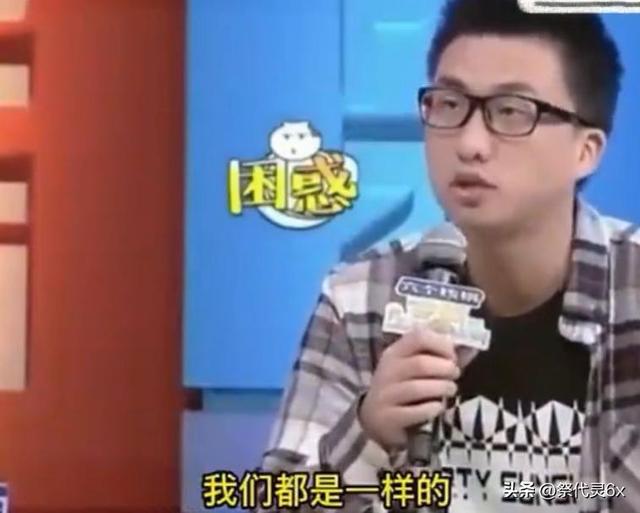七年级下册英语冀教版unite 1(③课本重点知识一网尽收)
1.Welcome to Xi'an--the Walled City.欢迎来到西安——围墙之城。
1.1Welcome to sp.欢迎来到某地。
1.2the Walled City.围墙之城。(专有名词,首字母要大写。)
2.You can walk along the wall in the Walled City. 你可以沿着这座围墙之城的墙行走。
2.1walk along...沿着……行走。
2.2in the Walled City.在围墙之城里。
3.It is about 12 kilometres long and over 600 years old. 它大约有12千米长且有600多年的历史。
3.1It is 基数词 单位十量度词。
3.2about介词,大约,
over介词,超过,多于=more than。
4.You can climb up the Big Wild Goose Pagoda .你可以爬上大雁塔。
4.1climb up/down爬上/下
4.2the Big Wild Goose Pagoda.大雁塔,专有名词,首字母大写。
5. It is over 1 300 years old.
它有1300多年的历史。
6.You can hit the drum in the Drum Tower.你可以在鼓楼上击打古老的鼓。
6.1hit及物动词,击,击中,碰撞
6.2the Drum Tower.鼓楼。

7.You can also ring the ancient bell in the Bell Tower. 你也可以在钟楼上敲打古老的钟。
7.1also ,too与 either的区别
①too,either一般放句尾,also不能用于句尾,有时用于句首。
②too多用于口语中,语气较轻,通常用于肯定句或疑问句,一般不用于否定句,且通常放在句末。also 有时用于句首(其后通常有逗号),相当于连词 and.如:
I like you too.我也喜欢你。
Are they coming too?他们也来吗?
Also,his mother was dead.再说,他母亲又过世了。
③too可放主语后,also,either不行。
too 有时也紧跟在主语后,此用法较正式.如:I,too,know where he lives.我也知道他住在什么地方。
注意:在 Me too,You too这类简略答语中,通常不用 either或also.如:
A:I’m tired.我累了.B:Me too.我也是.
④either通常用于否定句,also 比 too 正式,一般也不用于否定句,它在句中的位置通常是紧靠动词,即放在行为动词之前,特殊动词之后。有时为了强调也放在句末(但不常见)如:
He also came./ He came also.他也来了。
She is young and beautiful,and also rich.她年轻漂亮,而且有钱。
either(也)通常只用于否定句,且要放在句末.如:
I don’t know,either.我也不知道。
He hasn’t finished it,either.他也还没有做完。
7.2ring(rang,rung)及物动词,敲(钟),打电话,按(铃)
8.You can visit the famous Terra Cotta Warriors. 你可以参观著名的兵马俑。
8.1visit sp.参观某地。
8.2the Terra Cotta Warriors.兵马俑。
9.Eat delicious Chinese food and enjoy the special dishes of Xi'an.吃美味的中国食物,享受西安的特色菜肴。

9.1delicious food美食,food不可数名词。
9.2the special dishes of...特色菜肴,dish可数名词,复数后 es,莱肴,碟,盘。
9.3enjoy及物动词,喜欢,享受……乐趣。
①enjoy 名词/代词/动名词,
enjoy doing sth.喜欢做某事。
I enjoy watching TV.我喜欢看电视。
②enjoy oneself=have fun=have a good time.玩得开心,过得愉快
They enjoyed themselves at the Party.他们在聚会上玩得开心。
10.Xi'an has a long history. You will have a lot of fun here in this ancient city!西安有悠久的历史。在这座古城,你将会玩得很开心。
10.1have a long history.有悠久的历史。
10.2have a lot of fun .玩得非常开心。
10.3lots of 和 a lot of的意思“许多,大量”可以通用,都可以后接可数名词或不可数名词。不过书面语用a lot of较多,口语用lots of较多。
例句:You have lots of/a lot of time to finish the work.你有大量的时间去完成工作。
11.Tour Guide 导游。
11.1tour①可数名词,旅游,
a tour of/around...,……的旅行。
②动词,旅游,旅行,
tour around sp.游览某地。
I want to tour around Beijing this summer.这个暑假我想游览北京。
12.Welcome to the Terra Cotta Warriors. We call them Bing Ma Yong in Chinese.欢迎来到兵马俑。在汉语中我们称它们为“兵马俑”。
call sb. /sth. 名词。称呼某人/某物为……We call him Liming.我们称他为李明。

13.This is an ancient place. Let's go to the first pit!这是一个古老的地方。让我们去一号坑。
the first pit一号坑(特指)。
14.Can you see the Terra Cotta Warriors?They are standing beside their horses.你们能看到兵马俑吗?它们正站在它们的马旁边。
beside介词,在……旁边。
15.I want to sit on one of the horses!。我想骑在其中一匹马上。
15.1want to do sth.想干某事。
15.2sit on sth. 坐在某物上。
15.3 one of the 名词复数,……之一。作主语时,谓动用单数形式。
16.Please stand here with me and move with me.请和我一起站在这儿,随我一起移动。
move不及物动词,移动,搬动,指位置改变。move to搬到……。
move from...to...,从……移动到……
move也可作及物动词,搬动,移动,
Please move the box.请移动这个盒子。
17.I am really excited!我真的很激动。
17.1excited指人、物对某物感到兴奋;
exciting侧重指人、事、物本身让人兴奋、激动。
17.2really副词,意为“实际上,事实上;真正地,真实地;真的吗?(表语气)

18.This is wonderful! 这太神奇了!
18.1wonderful形容词,精彩的;绝妙的;令人高兴的;使人愉快的;令人惊奇的;令人赞叹的。
19.May I take photos here?
我可以在这里拍照吗?
19.1May I / we …?这一类疑问句的肯定回答为Yes, please.或Certainly;否定回答为Please don’t.或No, you mustn’t. 例如:
May I go home now?
现在我可以回家了吗?
1) No, you can't. 不,你不能回去。
2) No, you mustn't. 不,你千万别走。19.2take photos照相,拍照片
20.No. Look at the sign,“No photos!”
不可以。看那个牌子:“禁止拍照!”
20.1No 名词/动名词,此结构表示“禁业做某事”,常用于公共场合,提醒人们注意,no在此处意为“不准,不许”。如果后接可数名词要用复数形式。例:
No parking!禁止停车!
No smoking!禁忙吸烟!=Don't swim.禁止游泳!
21.Jeff ran too fast and hit his head on the tree.杰夫跑得太快了,头撞到了树上。
21.1hit one's head on the tree.头撞到树上了。
21.2hit sb. on /in the 身体部位
on用在身体较硬的部位,
in用在身体较柔软的部位。
He never hits the child on the head/in the face .他从来不打孩子的头/脸。

免责声明:本文仅代表文章作者的个人观点,与本站无关。其原创性、真实性以及文中陈述文字和内容未经本站证实,对本文以及其中全部或者部分内容文字的真实性、完整性和原创性本站不作任何保证或承诺,请读者仅作参考,并自行核实相关内容。文章投诉邮箱:anhduc.ph@yahoo.com






